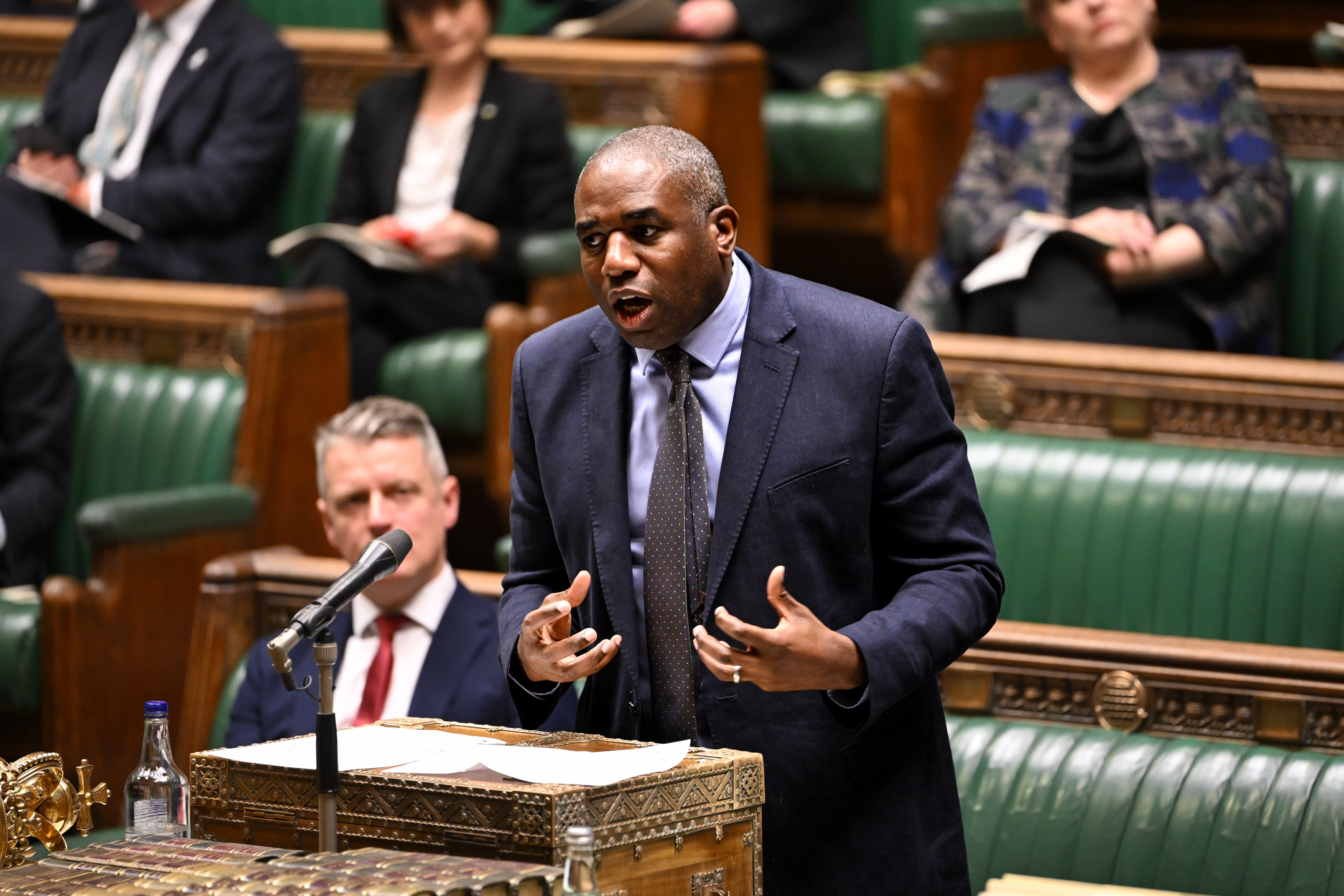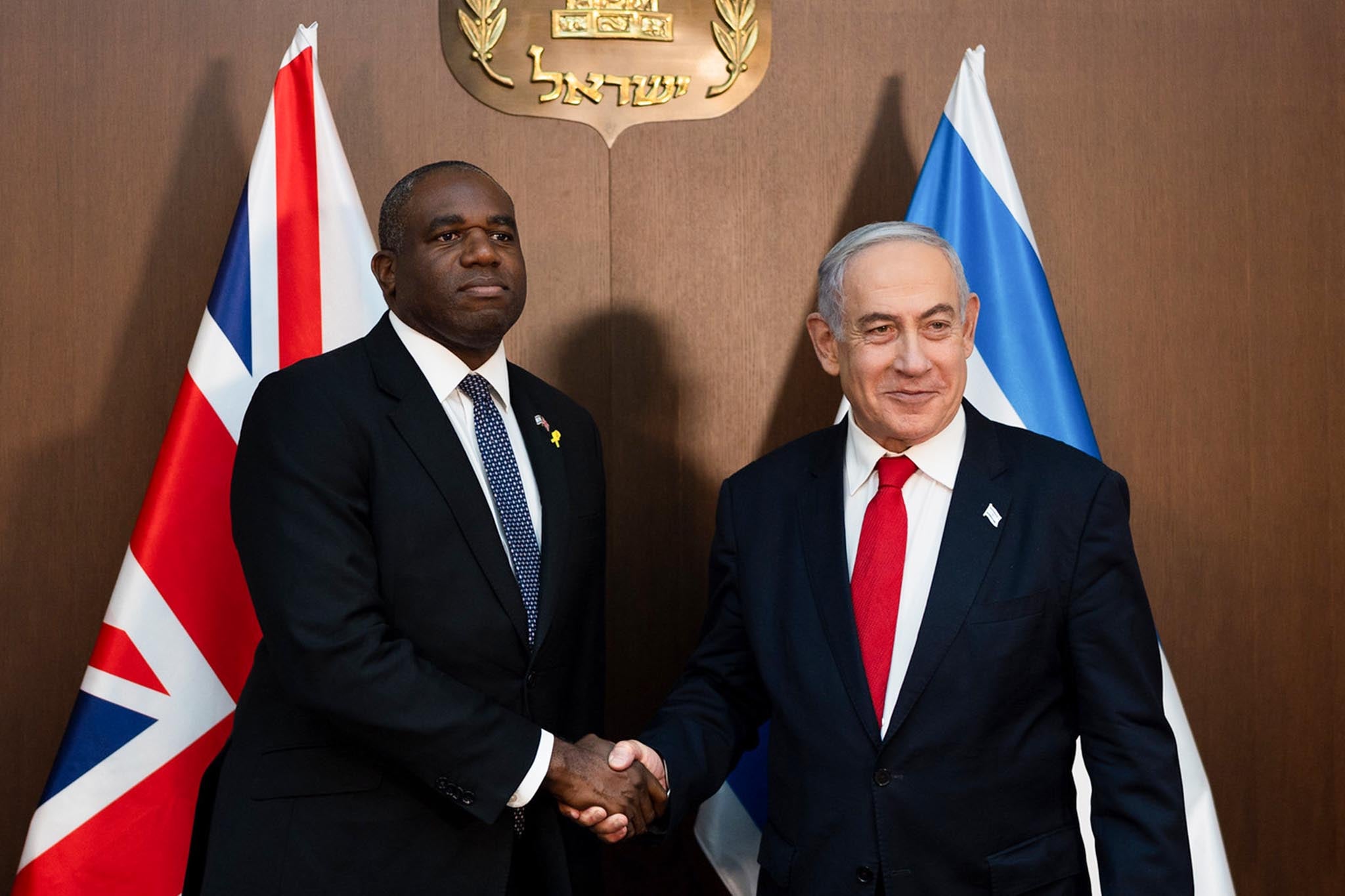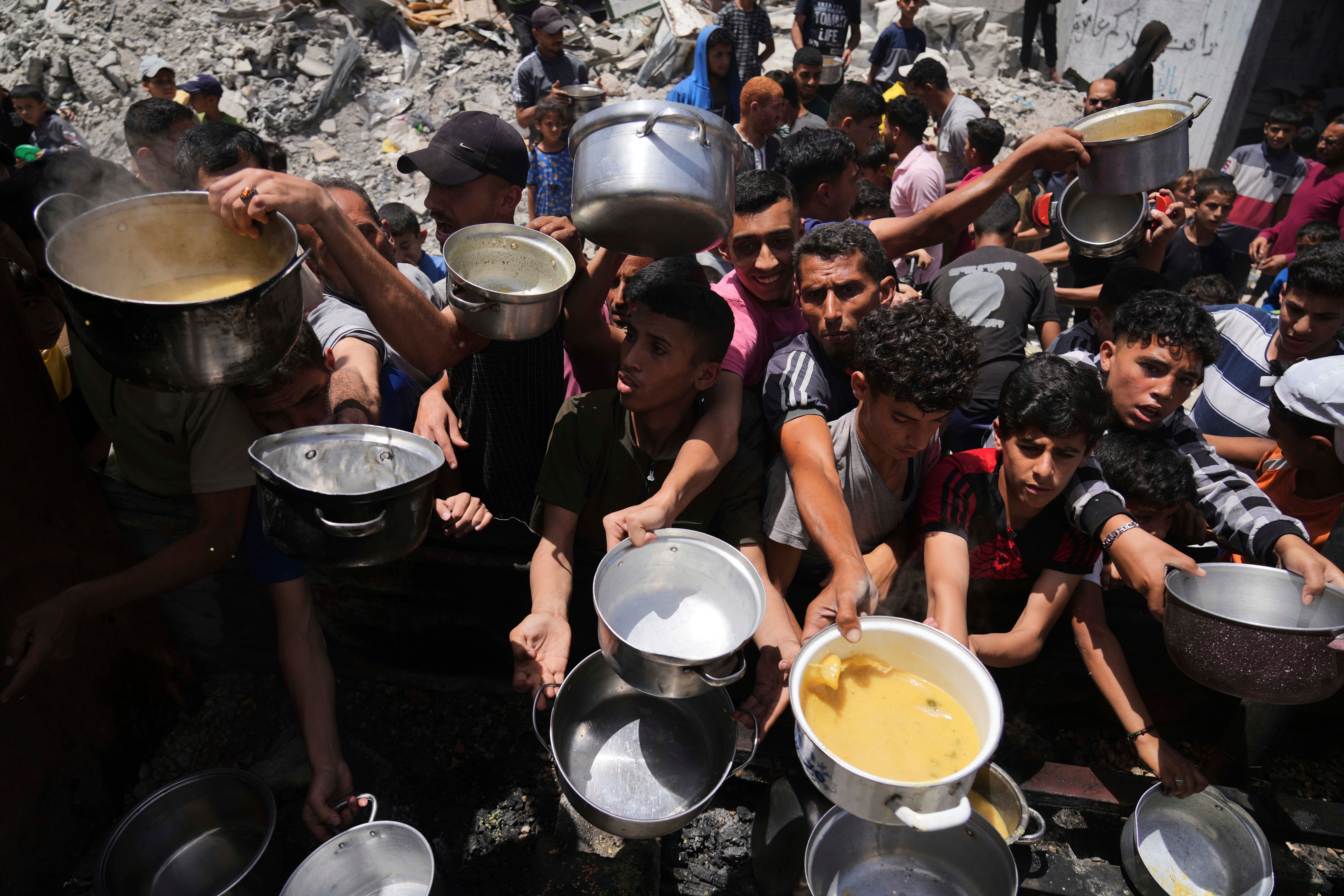ARTICLE AD BOX
The UK has announced further sanctions and a suspension of trade negotiations with Israel, as it condemned its “monstrous” 11-week aid blockade and renewed military offensive in the Gaza Strip.
Foreign secretary David Lammy announced a series of measures on Tuesday as the UN warned that 14,000 Palestinian babies could die by Thursday unless action is taken to ease the crisis in which civilians are severely malnourished.
He announced the suspension of trade talks, imposed sanctions on three individuals and four entities involved in the settler movement, and said Benjamin Netanyahu’s actions were “wholly disproportionate” and “utterly counterproductive”.
As MPs in the Commons called on him to label it a genocide and go further with sanctions, Mr Lammy said: “We must call this what it is. It is extremism. It is dangerous. It is repellent. It is monstrous and I condemn it in the strongest possible terms.”
The measures were announced after the UK, France and Canada warned Mr Netanyahu they would take “concrete action” unless Israel frees up humanitarian aid and stops violence in Gaza.
Here is a look at what sanctions the UK has placed on Israel this week and in the past.

What sanctions has the UK placed on Israel this week?
The Foreign Office announced new sanctions against West Bank settlers in “response to the persistent cycle of serious violence” in the region.
Mr Lammy condemned the actions of “extremist” settlers in the West Bank, saying Mr Netanyahu’s administration has a responsibility to intervene to halt their actions.
The measures announced on Tuesday include financial restrictions and travel bans. They cover prominent settler leader Daniella Weiss and two other individuals, as well as two illegal outposts and two organisations that the Foreign Office said supported, incited and promoted violence against Palestinian communities.
Ms Weiss, a target of the sanctions who the government described as a "high-profile extremist settler leader", was a key focus of the recent Louis Theroux BBC documentary Settlers, which shone a light on the tactics of Israeli settlers in the Palestinian West Bank.
The measures follow a dramatic surge in settler violence in the West Bank, with the UN recording over 1,800 attacks by settlers against Palestinian communities since 1 January 2024.

What other measures were announced?
The UK has suspended trade deal talks with Israel and summoned the country’s ambassador.
In the Commons, Mr Lammy said: “We have suspended negotiations with this Israeli government on a new free trade agreement.”
He also said the UK is reviewing its co-operation with the Israeli administration, adding: “The Netanyahu government’s actions have made this necessary.”
Israeli ambassador Tzipi Hotovely has been called in to the Foreign Office, where Middle East minister Hamish Falconer said he would set out the government’s opposition to the “wholly disproportionate escalation of military activity in Gaza” and emphasise that the 11-week block on aid “has been cruel and indefensible”.

What sanctions did the UK have in place already?
The UK government has not provided “lethal or military equipment” to Israel since October 2023.
The UK suspended about 30 of the 350 arms licenses for exports to Israel last September, which could be used in military operations in Gaza, including fighter aircraft, parts for unmanned aerial vehicles and targeting equipment.
Mr Lammy said the decision was taken at the time because of a risk the weaponry could be used to commit a “serious violation of international humanitarian law”.
But fighter jet parts are not included in that suspension, and the government is now the subject of a High Court challenge in which human rights groups are arguing the sale of those parts to Israel is unlawful.
Separately, the UK, France and Canada have targeted sanctions against Israeli settlers over violent attacks against Palestinians in the occupied West Bank, and in a joint statement, the three countries said they would “not hesitate to take further action, including targeted sanctions”.









 English (US) ·
English (US) ·